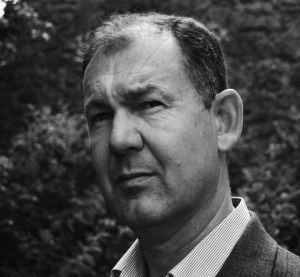I wonder how many people reading this will have heard of PTSD and wondered exactly how victims are affected? How many will have seen veterans talking on TV about experiences and see that brave people become emotional and unable to talk any further, the surge in feelings overcoming their ability to talk.
In fact, symptoms are far more wide ranging than most people realise and can vary widely between individuals. They may develop during the first month after a person witnesses a traumatic event. However, in many cases there may be a delay of months or even years before symptoms start to appear.
Many victims, me included find that counselling helps them to understand what is going on within their own minds and bodies. It helps to appreciate how a simple chemical imbalance in the brain has been triggered and how the physical and psychological effects that follow are a result of that imbalance.
But counselling doesn’t fix the symptoms on its own. Anti-depressants are a great help and they worked for me. The pills help the body restore chemical balance so that the brain can then start to regain control.
For me, writing started as a way of helping the counselling. Like many victims, I became emotional when prompted to talk about experiences and describe what had caused the PTSD in the first place. Like many, I was advised not to worry and to try and make notes to bring back to counselling session that I could use to refer to and which might help the counsellor to help me. I made the notes at times when I felt up to it, writing down what had happened, how I had felt, how it had affected me. I recorded dreams that I had, flashbacks and imaginary. Over the weeks and months I found that writing things down helped my brain to get things focussed, to get my thoughts back in order and to regain structure and control.
When asked how it helped, I describe it like this. Before the writing, my brain felt a bit like a fragmented hard disk. Lots of data, confused, hard to join up and recall. Thought processes were slow, decision making was poor. After writing, it was like a PC de-fragment, where the information/memory is more organised and easier to use. It works more quickly and efficiently, thereby reducing frustration and making life easier.
Also, consider the analogy of a PC screen with too many tabs open to really use any of them effectively. After writing/counselling I was able to close down many of the tabs and focus on the relevant. Memories and distractions were filed away enabling me to concentrate on the here and the now.
It helped immensely.
And had an unexpected benefit when my counsellor was moved to comment on how much she enjoyed my writing.
So, one day I followed her advice again and started to weave the notes jotted down into a novel. The more I wrote the better I felt. There were several dips, several times when I found myself reliving things in a way that I preferred to avoid, but, despite the low points, the overall direction was onwards and upwards.
"Making effective progress means seeking help, and being brave enough to accept that you cannot do it on your own."
For me, the road to recovery from PTSD has been like the game of snakes and ladders. But with some differences. In the board game, you move forward, starting on square 1, to eventually aim to end the game at square 100. On the way, if you land on certain squares there will be a ladder to help you up or a snake that will send you further down the board. Some ladders are very helpful, others not so. Some snakes are a small setback, others much greater in effect.
Making effective progress means seeking help, and being brave enough to accept that you cannot do it on your own. It’s a long upward climb, a mountain, one that nobody should undertake on your own. Talking to a counsellor will help. To climb it, you’ll need equipment that’s up to the challenge and guidance from those that know how.
And to get that guidance, you’re going to need support. Not just the support of those close to you but professional support and peer support.
Writing was my ladder.
Go find yours.
PTSD – let it be a mountain that you turned into a molehill.
Matt has written a novel following his experiences of PTSD called 'Wicked Game', which is available now by ORENDA Books. You can find out more on his website: www.mattjohnsonauthor.com/tag/ptsd
